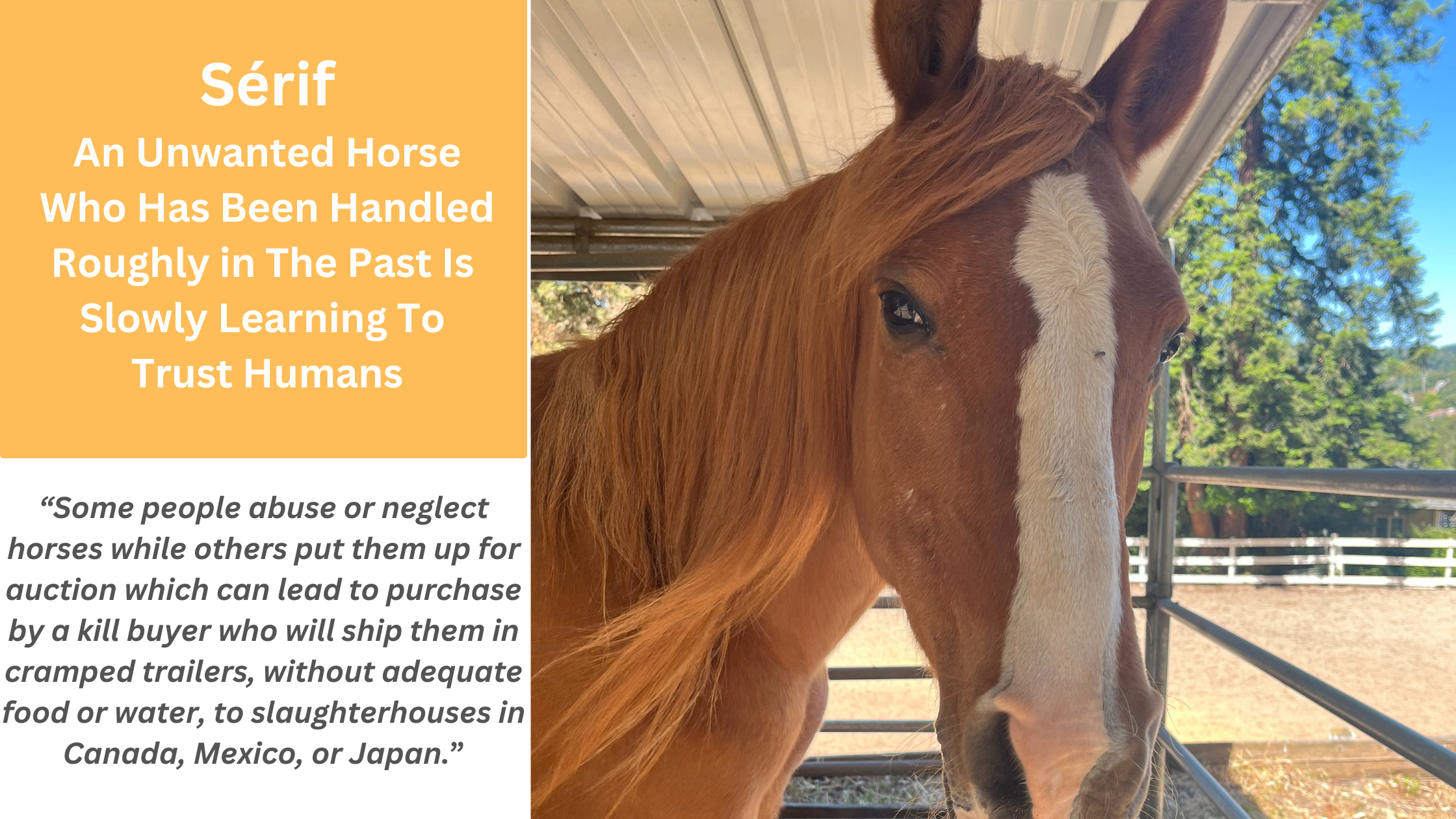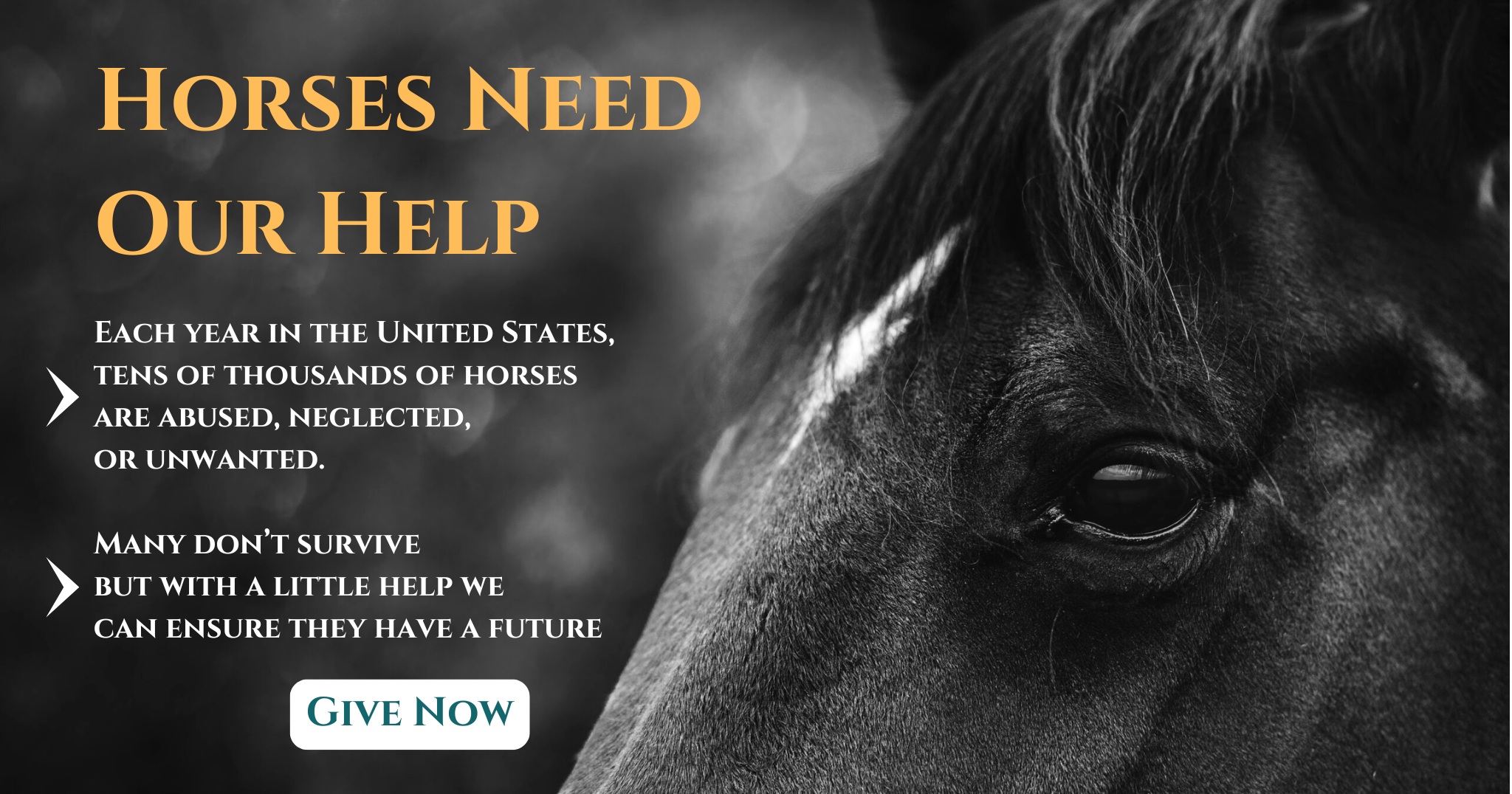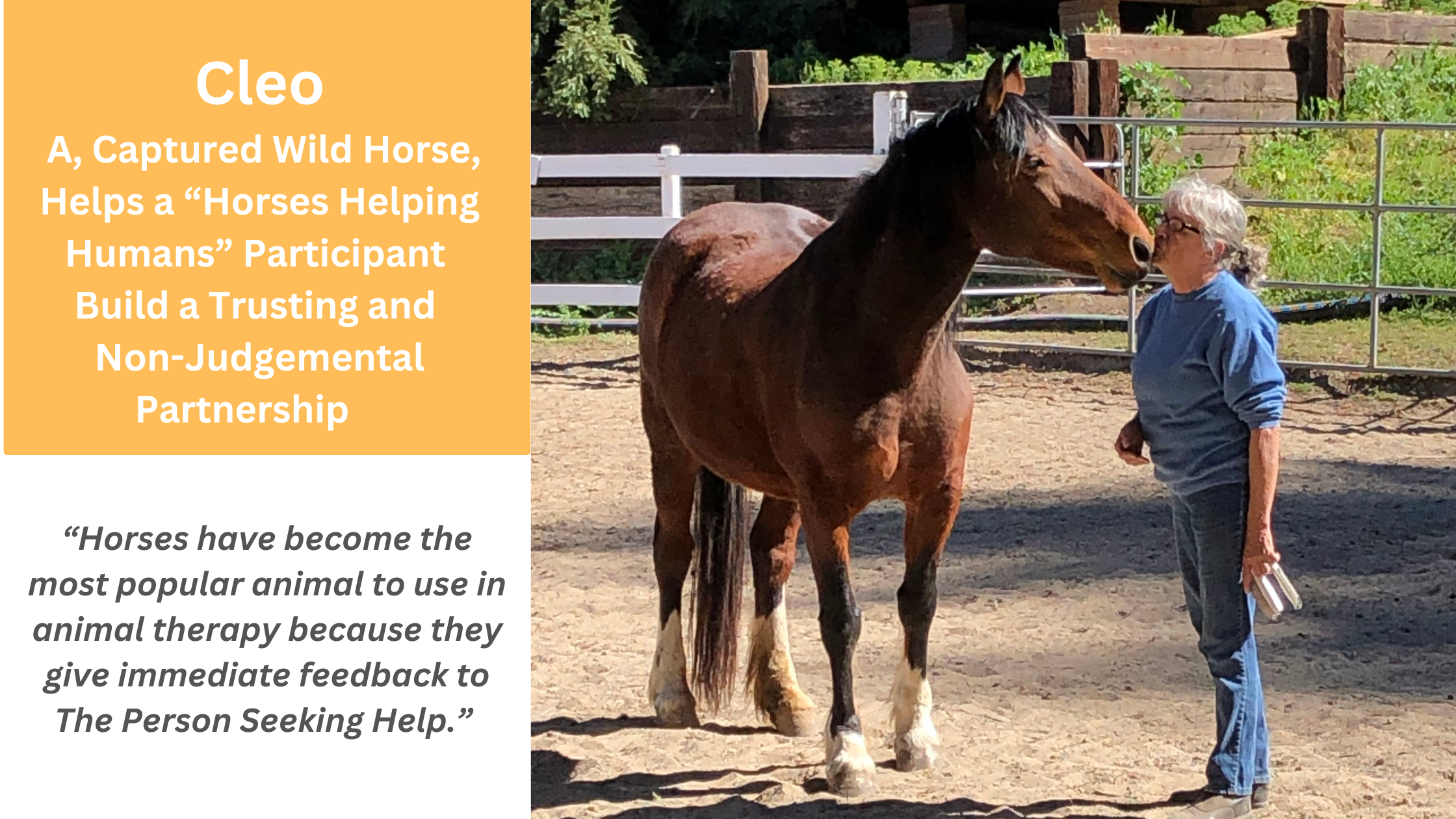NEGLECT, ABUSE, SLAUGHTER
HOW CAN SOCIETY ALLOW HORSES TO BE NEGLECTED, ABUSED OR SENT OFF TO SLAUGHTER?
Horses have been with humankind for centuries. Although beautiful to look at, humans quickly realized how useful they would be. Before long, horses were “broken” and trained to haul goods, transport people, clear land, herd cattle, and finally as a form of recreation once their numbers declined as a result of motorized vehicles. Suffice it to say that the horse has been the source of labor that helped to build this country and make people rich. Today, horses have faded into the background of American society, because we no longer need them to carry us across town, pull out tree stumps, or deliver ice, food, or grain to a local establishment.
And yet, man’s love for this majestic animal has not waned. We not only revere its beauty but its strength of fortitude and heart. Who among us hasn’t stopped to watch the grace and beauty of a horse as it runs free across a pasture, feeling mesmerized and inspired by its mere presence?
THE PROBLEM
Now that we no longer need horses for economic purposes other than recreation and sport, the question of what to do with them is a never-ending issue. Horses are expensive to keep. Unlike a dog who might only require the corner of your bedroom to sleep and the occasional walk, a horse is a 1,000-pound animal that needs space and room to move. They require a lot of food—hay and grain—along with regular grooming and care, including the cost of a farrier. And then there’s the problem of what to do with the mountains of horse manure left behind.
In the end, many people give horses up or abandon them because they realize that long-term, they can’t afford the time or money to properly care for them. Some abuse or neglect them while others put them up for auction which can lead to purchase by a kill buyer who will ship them in cramped trailers, without adequate food or water, to slaughterhouses in Canada, Mexico, or Japan. They are then turned into horse meat for human consumption, dog food, glue, and other consumer goods.
Slaughter is a tragic end for such a magnificent animal; an animal that has given its heart and soul to humans for centuries.
“We NEVER conduct mass bailouts from kill pens. Mass bailing of horses fatten the wallets of those involved in the horse slaughter industry and are not sustainable in the long term. In fact, their business models compromise the welfare of horses that are truly at risk. We urge you not to get caught up in the sob stories and spend your dollars helping sustainable rescues that work with, and support the community at large.”

THE NEED
To save horses from neglect, abuse, abandonment, and slaughter, we need to find new ways in which to utilize the great benefit they bring to humanity, not just as a labor or recreational source, but as a spiritual and inspirational source as well. For instance, just like dogs and cats, horses have great healing abilities that are under resourced and underutilized in mental health and therapy programs.
According to PsychCentral, “Animal-assisted psychotherapy can be an evidence-based complementary treatment to traditional therapy.” These programs work with neurodiverse children, veterans who suffer from PTSD, patients with dementia, cerebral palsy, and traumatic brain injuries, Down Syndrome, and even individuals dealing with past trauma and abuse. Anxiety Treatment Center in Sacramento, California says, “Horses have become the most popular animal to use in animal therapy because they give immediate feedback to the handler or rider’s actions.”
Therapists say that because these magnificent animals have similar social and responsive behaviors as we do, they can sense a person’s emotions and have the ability to mirror those feelings. This offers the individual an opportunity to talk about their feelings and emotions without fear or judgement. For someone with social anxiety, an inability to communicate effectively with others, or lack of impulse control, equine therapy can help them build confidence, trust, social skills, and communication. Working with horses can also help to build empathy, self-esteem, and awareness.
Besides equine therapy programs, there is also a need for better education around the care, feeding, and interaction with horses. This would help people who buy a horse to gain greater personal pleasure from them, while helping the horse to live its best life.
In the end, we need more programs that not only rescue horses, but rehabilitate them for other uses, insert them effectively into equine therapy programs, and educate potential owners on how to be a successful horse owner.
OUR HORSE RESCUE PROGRAM
Canham Farm Horse Rescue takes in abused, neglected, slaughter-bound, and unwanted horses with the goal of rehabiliating them either physically or mentally so they can be adopted out into loving homes – homes where they can thrive forever. Our rigorous vetting program ensures the integrity of all our adopters.
All horses that are taken into our care are rehabilitated by our founder, Julia or assistant Malia Valentine and a lot of extraordinary people who volunteer their time to help. We focus on a Consent – Trust – Connection technique that focuses on the horse’s needs and not our own. We are a small facility but we try and take in as many at-risk horses as space and time allows.
OUR HORSE ADOPTION PROGRAM
First and foremost, we love finding new and loving homes for the horses we rescue. Our adoption program offers horses that are healthy, rehabilitated, and trained. Our vet reports are available upon request, and we’re happy to discuss everything we know about the horse’s health, temperament, abilities, character, and age. For instance, their teeth will have been floated, which means the sharp enamel points that develop on a horse’s teeth during chewing will have been removed. The horse’s feet will be trimmed and/or shod, its vaccinations will be current, the horse will be groomed and at a good body weight, and microchips will have been inserted and registered.
“Horses change lives. They give our young people self-esteem.
They provide peace and tranquility to troubled souls; they give us hope.” —Toni Robinson
OUR HORSES HELPING HUMANS PROGRAMS
We believe in the positive difference horses can make in the lives of people who struggle emotionally. That’s why we are in the midst of developing an equine therapy program that will combine mindfulness, meditation, and horses to help create self-awareness and manage negative emotions in people with specific illness, mental health diagnoses, veterans, and more.
Therapy will mostly take the form of unmounted, on-the-ground activities such as petting, brushing, or walking the horse. This is effective because animals can help to regulate a person’s nervous system, promote endorphins (the feel-good hormone), and help to calm someone with an overactive nervous system.
SUPPORT FOR WILD HORSES PROGRAM
Wild Horse Management is a complex problem in the United States. The Bureau of Land Management (BLMWHB) is charged with managing and protecting this icon of the American West. Unfortunately, special interest groups, Big Oil, Big Agriculture, Politicians, Ranchers and Lucas Oil and their Non-Profit Protect the Harvest among others are working toward eliminating Wild Horses and Wild Animals from our Western Rangelands. Follow Support For Wild Horses Facebook Page.
“I have seen things so beautiful they have brought tears to my eyes.
Yet none of them can match the gracefulness and beauty of a horse running free.”
– Unknown
We are advocates working towards a better understanding on how this situation came about and the failed attempts at solving it. We work to educate the public on the facts and the role they can take in helping to stop the slow removal of one of America’s great Living Legends, the American Wild Horse Herds and Mustangs.
HOW YOU CAN HELP
The care, rehabilitation, and training of an abused or abandoned horse is expensive, and we can’t do it alone. As a 501 C3 organization, we rely on community support. All gifts are tax-deductible to the extent permitted by law and help us to continue to provide these important programs.
Cash gifts: a donation in cash is always the most efficient way to support what we do, because cash can be immediately applied to priority areas of need. You may send a check, make an online donation, or pledge your gift over several months.
In-kind gifts: We do accept a limited number of in-kind gifts, such as graphic design, website design, and so forth. Please contact us in advance if you have something you think we could use.
Volunteering: It’s true! Horses take a lot of care. We can always use volunteers to help manage the stables and care for the horses, as well as with our marketing or fundraising events. Please give us a call if you’re interested.
Sponsor a horse program: You can help with the basic care and feeding of one of our horses by sponsoring a horse. This is a special way you can support what we do. We have 4 levels of sponsorship: Walk, Trot, Canter, and Gallop. The Gallop level fully sponsors a horse each month for a gift of $100 per month, while the lower levels lend a much-needed helping hand to other aspects of a horse’s care. Please contact us for more information.
Affiliate Giving: People can help by letting us know which companies offer employee matching gifts or give out small community grants. That little bit of information would be of tremendous help as we move forward. And if you’d like to hold a fundraising event to benefit our horses, please give us a call.
“Giving is not just about making a donation. It is about making a difference.”
– Kathy Calvin
Please help us provide sanctuary to abused and abandoned horses and the resources necessary to rehabilitate and train them for a better life. With your support, you can not only change the life of a horse but perhaps the life of someone who desperately needs the empathy, grace, and inspiration they provide.

